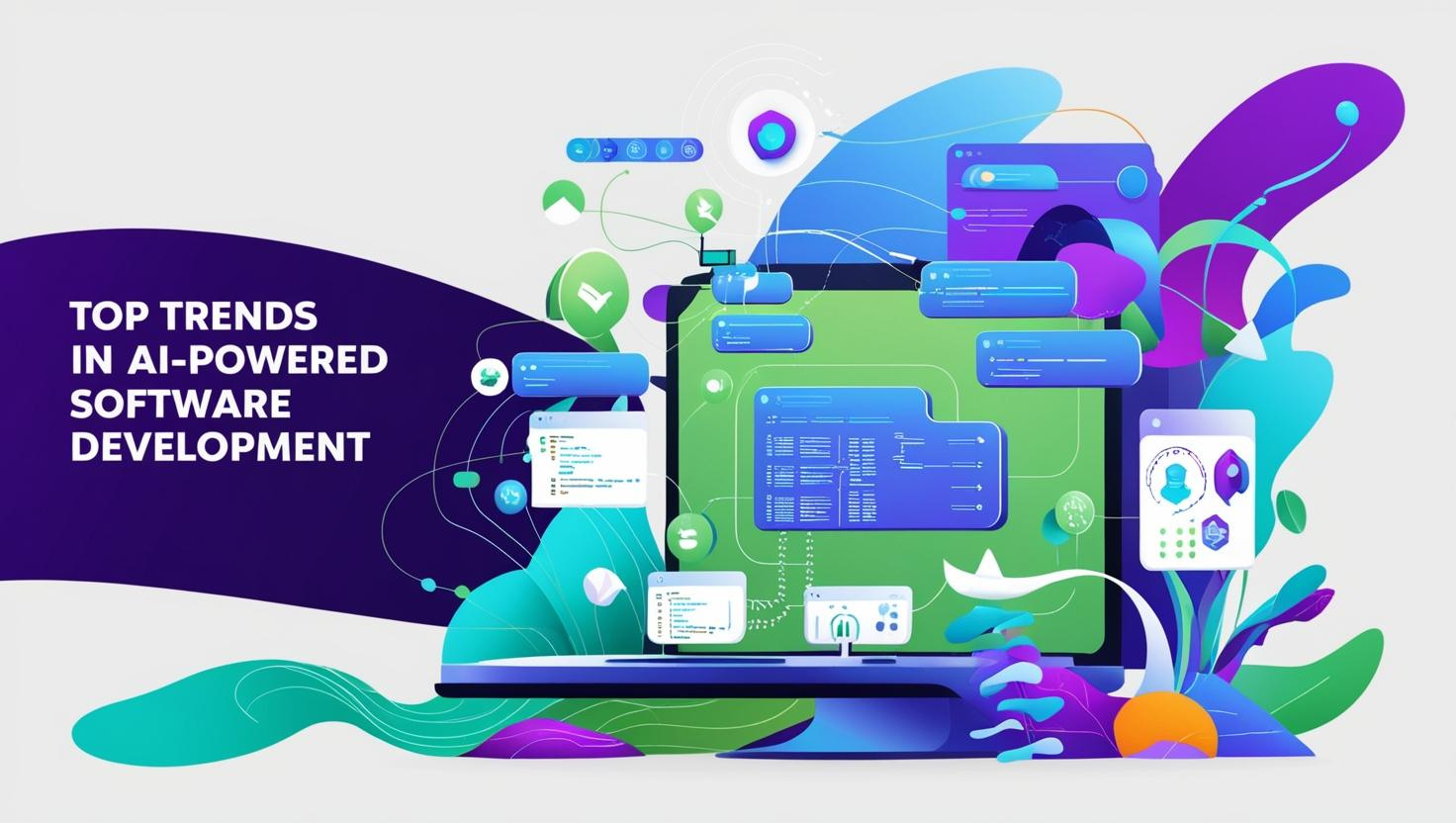Top 10 AI-Powered Software Development Trends Shaping 2025

The future of software development isn't some far-off sci-fi fantasy; it's unfolding right now, powered by the incredible potential of artificial intelligence. Forget the hype – AI is no longer just a buzzword. It's fundamentally changing how we build software, and 2025 is shaping up to be a pivotal year. We're not just talking about marginal improvements; we're talking about a paradigm shift that's impacting everything from coding efficiency to the very architecture of the applications we create.
So, what are the key trends to watch? Well, AI-powered code generation is definitely leading the charge. Imagine having an intelligent assistant that can write significant portions of your code, freeing you up to focus on the bigger picture: design, innovation, and solving complex problems. This isn't about replacing developers; it's about augmenting their abilities and making them super-efficient.
Beyond code generation, AI is also revolutionizing testing, debugging, and even project management. Smart tools can now automatically identify and fix bugs, predict potential issues, and optimize workflows. This leads to faster development cycles, higher quality software, and reduced costs. We're also seeing AI play a bigger role in areas like security, helping to identify and mitigate threats in real-time.
The impact of these trends is far-reaching. Companies that embrace AI in their software development processes will gain a significant competitive advantage. They'll be able to deliver innovative products faster, respond more quickly to changing market demands, and attract and retain top talent. It's not just about staying ahead of the curve; it's about defining the future of software itself.
AI is No Longer a Buzzword: It's Reshaping How We Build Software
Remember when AI felt like a distant promise? Those days are over. Artificial intelligence has moved from the realm of science fiction to become an indispensable tool in the software development world. It's not just about automating mundane tasks anymore; AI is fundamentally changing how we approach software creation from start to finish.
We're seeing AI algorithms that can analyze vast amounts of data to identify patterns, predict user behavior, and personalize experiences. This allows developers to create more engaging, relevant, and effective applications. AI is also helping to break down silos between different teams, fostering collaboration and streamlining the development process.
The rise of AI in software development is also creating new opportunities for developers. As AI takes over more routine tasks, developers can focus on higher-level strategic thinking, creative problem-solving, and designing innovative solutions. This shift requires a new set of skills, including a deeper understanding of AI concepts, data analysis, and machine learning.
From Automation to Augmentation: AI's Expanding Role
AI is no longer just about taking over repetitive tasks; it's increasingly about amplifying what we humans can do. We're seeing a shift from basic automation, where AI replaces human effort, to augmentation, where AI acts as a powerful partner. Think of it less like robots taking our jobs and more like having a super-smart assistant that handles the tedious stuff, freeing us to focus on the creative, strategic, and uniquely human aspects of our work. In fields like medicine, AI can analyze mountains of patient data to suggest diagnoses, but the doctor still uses their experience and empathy to make the final call. Or in marketing, AI can draft content and analyze trends, but the human team brings the creative spark and understanding of the brand. This collaborative approach is where the real potential lies – blending AI's analytical power with human intuition and critical thinking. It's about making us all more effective, efficient, and innovative.
This move towards augmentation is reshaping industries and creating new possibilities. Engineers can leverage AI for rapid data analysis and design optimization, while HR departments can use it for talent acquisition and employee tracking. AI-powered predictive analytics, combined with human expertise, strengthens resilience and helps businesses adapt their strategies in an ever-changing environment. We're also seeing AI assist in areas like code development, where it can generate code snippets and suggest optimal algorithms, allowing developers to focus on higher-level problem-solving. The key is finding the right balance between what AI can automate and where human judgment is essential. This integration fosters adaptability, encourages informed decisions, and opens doors for workers to develop high-value skills that keep them agile in a rapidly changing job market. Ultimately, AI augmentation is about unlocking productivity and innovation without compromising the human touch.
However, this transition isn't without its challenges. We need to address ethical concerns like algorithmic bias and data privacy, ensuring that AI systems are fair and transparent. There are also practical considerations, such as the need for robust data governance and security measures. Moreover, it's crucial to invest in training and education to equip workers with the skills they need to collaborate effectively with AI. This includes not only technical skills but also critical thinking, creativity, and emotional intelligence – the very qualities that AI is designed to augment. By carefully navigating these challenges, we can harness the full potential of AI augmentation to create a future where humans and machines work together to achieve more than either could alone.
AI's Code Generation Powers: Supercharging Developer Productivity
Imagine a world where writing code feels less like wrestling with a complex machine and more like a collaborative conversation. That's the promise of AI-powered code generation, and it's rapidly becoming a reality. For years, developers have dreamed of tools that could automate the more tedious aspects of their jobs, freeing them to focus on the creative problem-solving and innovative design that truly make a difference. Now, thanks to advances in artificial intelligence, those dreams are starting to materialize.
The ability of AI to generate code is more than just a neat trick; it's a fundamental shift in how software is created. Think about it: developers spend countless hours writing boilerplate code, debugging common errors, and wrestling with syntax. These tasks, while necessary, often detract from the higher-level thinking required to build truly exceptional applications. AI-powered code generation tools step in to handle these repetitive tasks, acting like tireless assistants that can churn out functional code based on simple instructions or even natural language descriptions.
This isn't about replacing developers; it's about augmenting their abilities and empowering them to be more productive. By automating the mundane, AI allows developers to concentrate on the core logic, user experience, and overall architecture of their projects. This leads to faster development cycles, reduced costs, and ultimately, better software.
